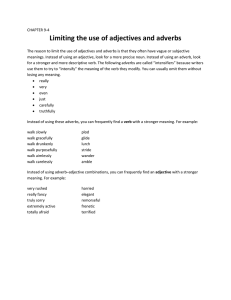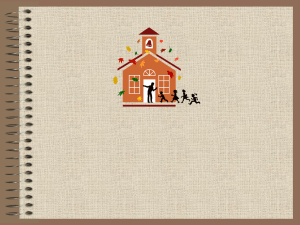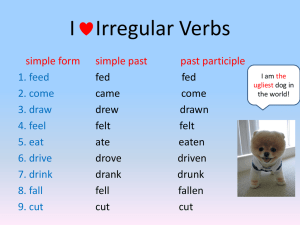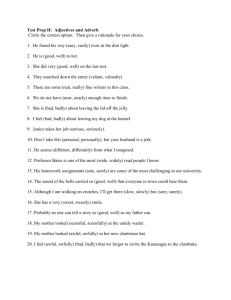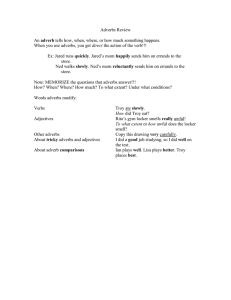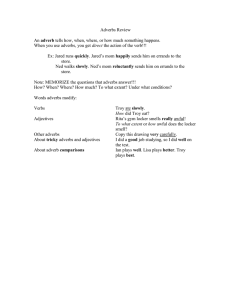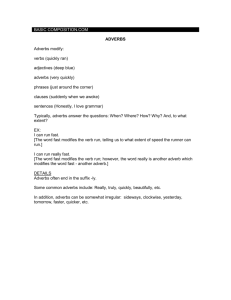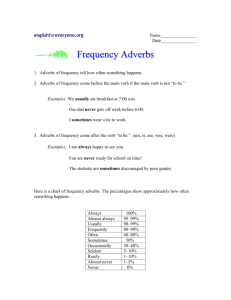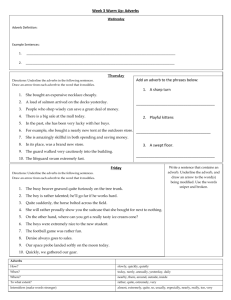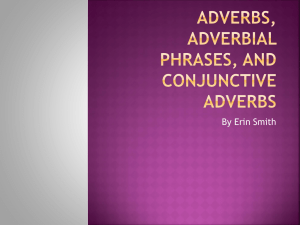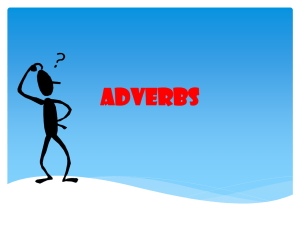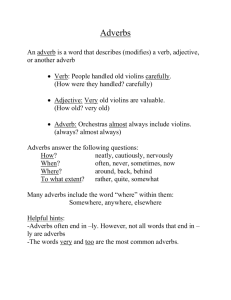Adverbs
advertisement
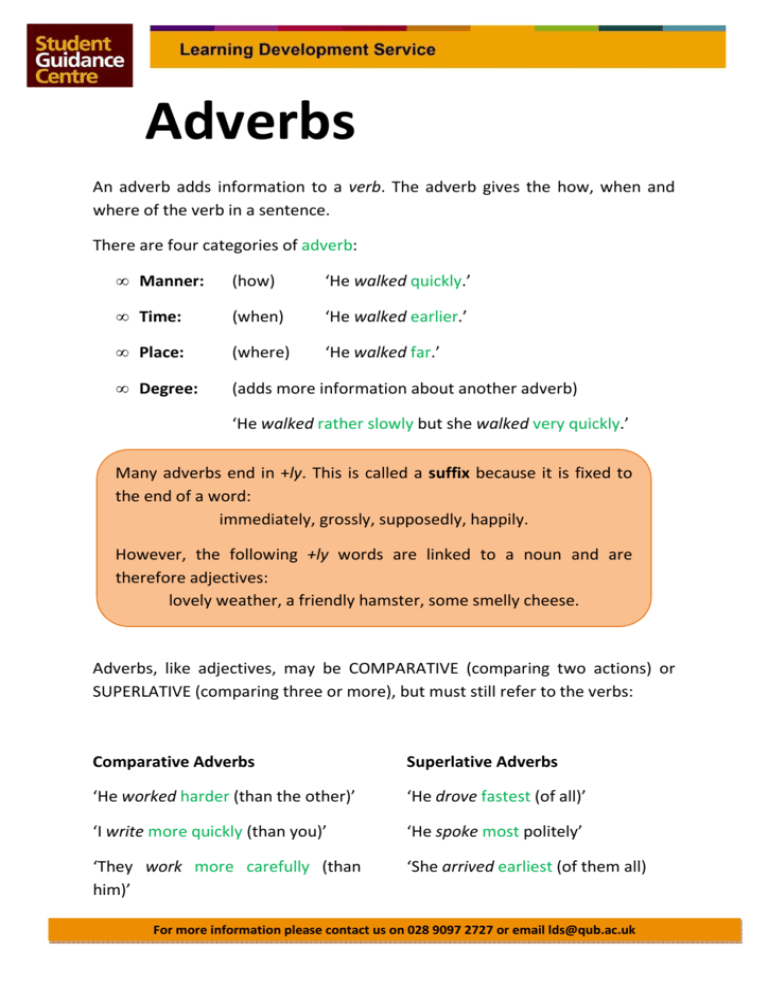
Adverbs An adverb adds information to a verb. The adverb gives the how, when and where of the verb in a sentence. There are four categories of adverb: • Manner: (how) ‘He walked quickly.’ • Time: (when) ‘He walked earlier.’ • Place: (where) ‘He walked far.’ • Degree: (adds more information about another adverb) ‘He walked rather slowly but she walked very quickly.’ Many adverbs end in +ly. This is called a suffix because it is fixed to the end of a word: immediately, grossly, supposedly, happily. However, the following +ly words are linked to a noun and are therefore adjectives: lovely weather, a friendly hamster, some smelly cheese. Adverbs, like adjectives, may be COMPARATIVE (comparing two actions) or SUPERLATIVE (comparing three or more), but must still refer to the verbs: Comparative Adverbs Superlative Adverbs ‘He worked harder (than the other)’ ‘He drove fastest (of all)’ ‘I write more quickly (than you)’ ‘He spoke most politely’ ‘They work more carefully (than him)’ ‘She arrived earliest (of them all) For more information please contact us on 028 9097 2727 or email lds@qub.ac.uk
